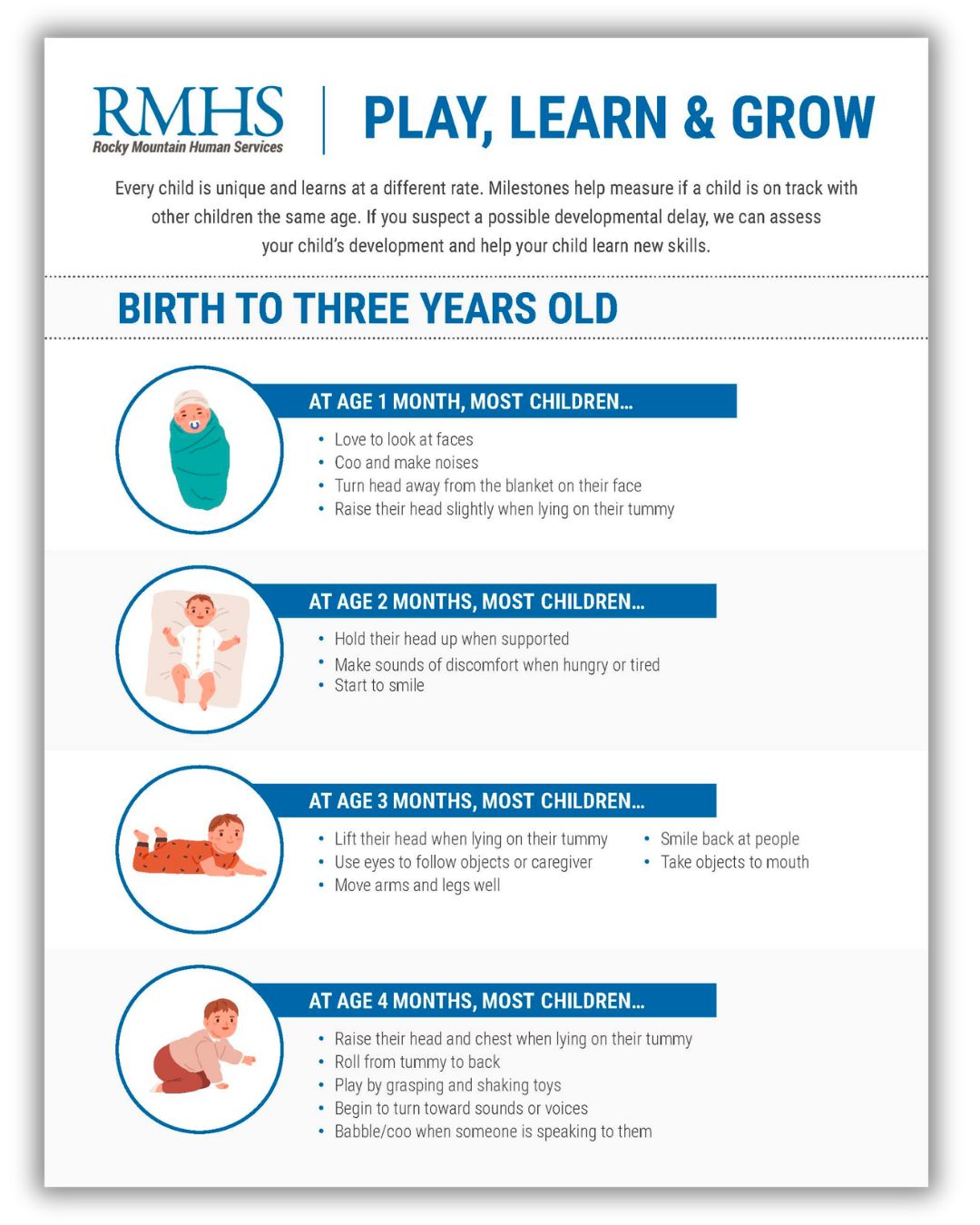Signs of Early Developmental Delays and How to Support Your Child
February 17, 2025

Learn the signs that could indicate your child may have a developmental delay and how early intervention can be the key to long-term success.
Every child is unique and develops at their own pace. While there’s no “one-size-fits-all” timeline for growth, some children may need extra support in certain areas. This guide is designed to help you understand what developmental delays are, recognize potential signs of a delay, and explore how early intervention and support can significantly improve the likelihood that your child will develop to their highest potential.
What is a Developmental Delay?
A developmental delay means that a child is not reaching certain milestones at the same rate as their peers. It’s a catchall term that indicates a noticeable difference in one area of development compared to other children of the same age.
A Delay May Occur in These Areas of Development:
- Language and Communication Skills: Using and understanding words and gestures.
- Gross Motor Skills: Crawling, pulling up to stand, walking, or jumping.
- Fine Motor Skills: Picking up small objects, scribbling, or using utensils.
- Social-Emotional Skills: Interacting with others, calming down, or managing emotions.
- Cognitive Skills: Understanding directions, problem-solving, and learning.
- Adaptive Skills: Self-help tasks like eating, dressing, or toileting.
It’s important to remember that a delay doesn’t necessarily indicate a long-term disability. In fact, the sooner services and supports are provided, the greater the chances that children will reach their full potential and be less likely to require extra help later on. With the right support, many children catch up to their peers, while others may need ongoing assistance.
Common Signs of a Developmental Delay
It can be difficult to know when to be concerned about your child’s development because every child develops a bit differently. It’s natural to witness your child’s growth with both awe and worry as you wonder if their development is on track.
Track your child’s development using this milestone chart and share your observations at every visit to the pediatrician.
Signs of Developmental Delays by Age
While it’s helpful to be aware of when children typically reach developmental milestones, it’s key to remember that every child develops at their own pace, and the timeline can vary widely.
As RMHS Early Childhood Special Educator Allison White often says, “Normal is just a setting on a washing machine.” What truly matters is the loving, supportive relationship you nurture with your child as they grow and learn.
Here are potential signs of a delay broken down by age:
By 4 Months
- Doesn’t make cooing sounds or early vocalizations.
- Struggles to bring objects or hands to their mouth.
- Doesn’t track moving objects with their eyes.
- Doesn’t smile or show enjoyment when interacting with others.
By 6 Months
- Muscles appear either overly stiff or overly floppy.
- Doesn’t attempt to reach for objects within their grasp.
- Shows little or no affection toward caregivers.
- Struggles to roll over in either direction.
By 12 Months
- Doesn’t crawl or attempt to stand with support.
- Doesn’t wave, point, or use other basic gestures.
- Struggles to move toys or objects from one hand to the other.
By 18 Months
- Doesn’t point to objects to share interest or show curiosity.
- Doesn’t walk or move independently.
- Shows little interest in copying actions or gaining new words.
- Doesn’t notice when caregivers leave or return.
By 2 Years
- Doesn’t form simple two-word phrases.
- Struggles to understand how to use familiar objects like a spoon or brush.
- Doesn’t follow basic instructions or mimic actions.
By 3 Years
- Frequently falls or has difficulty climbing stairs.
- Speech is unclear, or they continue to drool excessively.
- Doesn’t engage in pretend play or interact with other children.
- Doesn’t make eye contact or communicate in sentences.
What to Do If You Suspect a Delay
If you’re concerned about your child’s development, the best first step is to seek a free, professional evaluation.
Evaluation can provide key insights for families into their child’s development. Results may indicate no evidence of a delay, evidence of a delay in one area of development, or evidence of a delay in two or more areas of development.
The evaluation process can:
- Help determine whether your child has a delay.
- Identify what kinds of support would help them thrive.
- Offer tailored strategies to integrate support into your daily routines.
The earlier services begin, the more impactful they can be—especially during early childhood, when brains grow and adapt rapidly. So, if you have concerns, don’t hesitate to schedule an evaluation.
General Guidelines for When to Seek a Professional Evaluation
- Your child’s pediatrician has mentioned concerns.
- A childcare provider has noted delays in certain skills or expressed general concerns.
- You’ve stopped doing certain activities with your child because they feel too difficult.
- Your child experiences frequent tantrums that last more than 10 minutes. A toddler who has significant difficulty calming down after becoming upset may benefit from extra social-emotional support.
- Your child seems to communicate less than their peers or struggles with basic movements like crawling or holding a crayon.
- Your child isn’t developing adaptive skills quite as expected. A toddler who avoids self-feeding or struggles with picking up small objects may need support developing fine motor skills.
- Your child loses skills they once had.
Developmental Delay Evaluations for Colorado Families
Parents of children birth to 3 anywhere in Colorado can connect with Early Intervention Colorado to request an evaluation.
There are several ways begin the evaluation process:
- Complete the online referral form
- Call 833-733-3734 (833-REFER-EI)
- Email: GetStartedwithEI@state.co.us
- Download the referral form and fax to 303-866-5944
Other Evaluation Options for Denver Residents
If you’re a resident of Denver County and your child does not meet the eligibility requirements for Early Intervention Services, but you still have concerns about your child’s development, RMHS is here to help. You can:
- Self-refer for a free screening by emailing info-des@rmhumanservices.org.
- Complete a screening form online: English Form or Spanish Form
Additional Supports for Denver Families
The Denver Early Steps (DES) team at RMHS offers classes and groups for families for Denver residents to empower parents and caregivers and offer them a chance to connect with other families with young children in the area.
Program offerings include:
- Parent and Caregiver Classes: Covering topics like toilet training, the building blocks of communication, and picky eating versus problem-eating.
- Family Socials: Opportunities to connect with other parents and develop community.
Developmental Delays Can Be a Normal Part of Early Childhood Development
While the worry you may feel regarding your child’s development can feel overwhelming, you’re not alone. Developmental delays don’t define your child or your family—they’re just one part of your journey. With love, support, and the right resources, your child can grow into the best version of themselves.
As Allison White, one of Denver Early Step’s Early Childhood Special Educators, says when parents express concern about a possible delay, “At the end of the day, they’re still going to be your unique and amazing kid. If you hear nothing else, please hear that.”
Let RMHS help you take the next step. Visit the RMHS website to learn more about how we can support your family.








